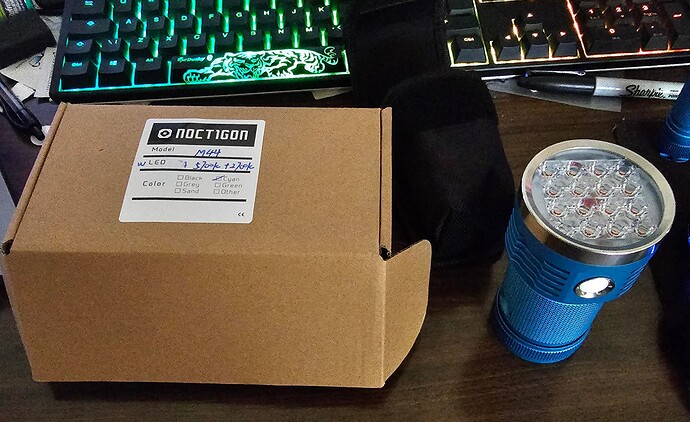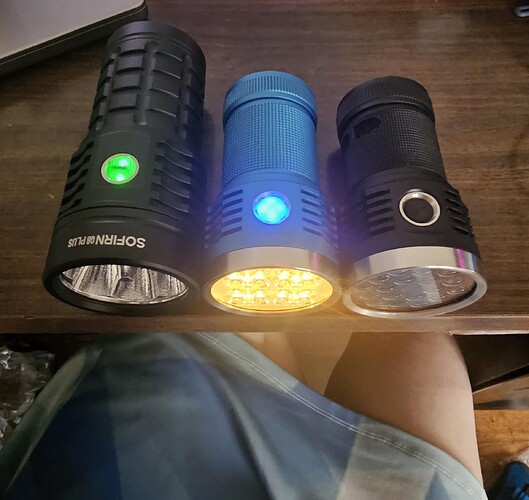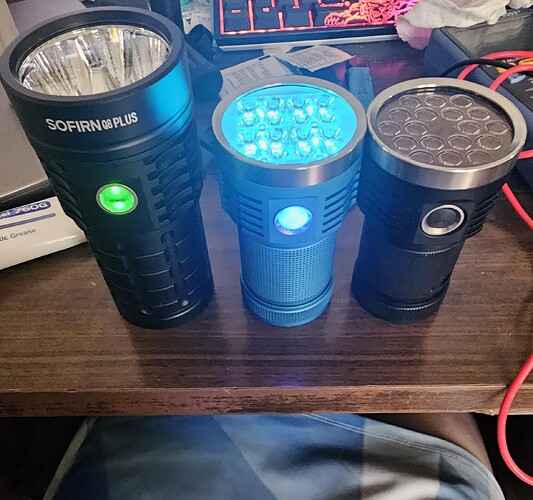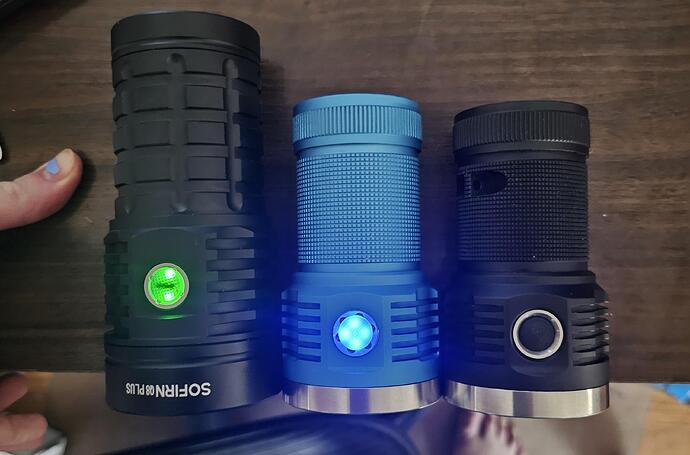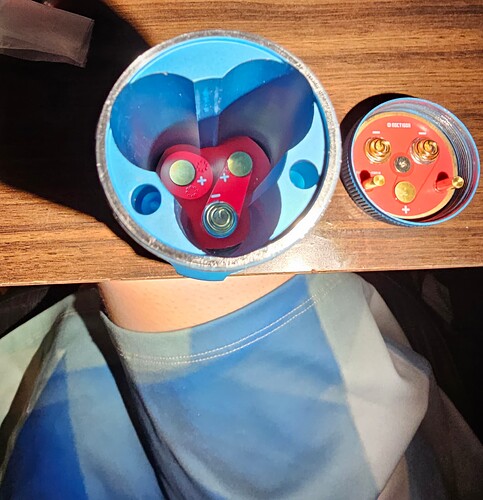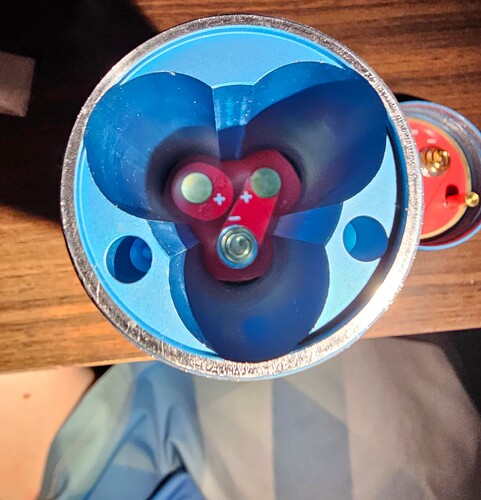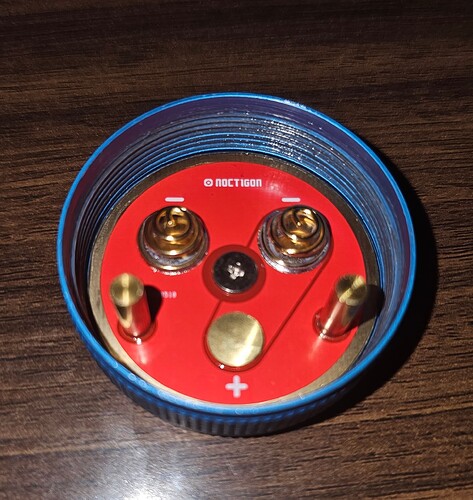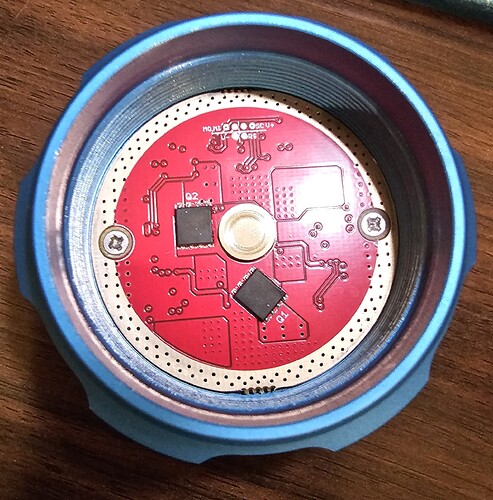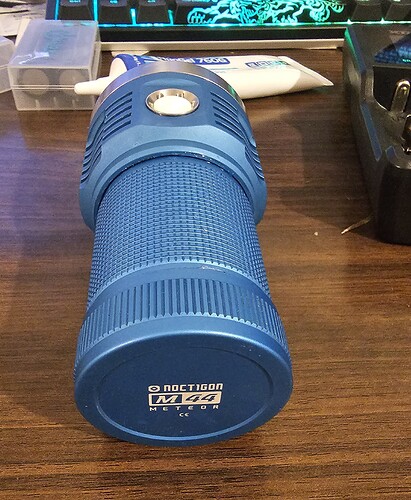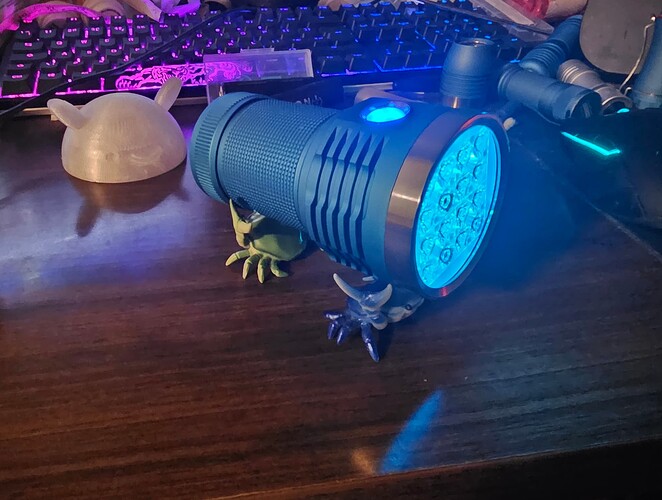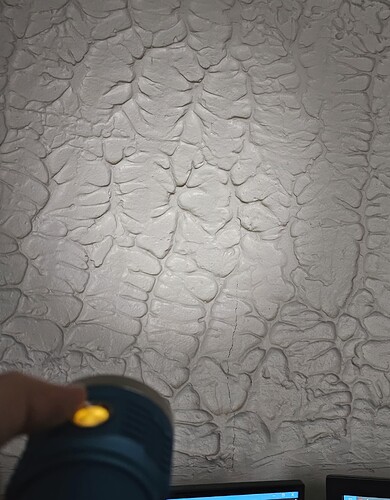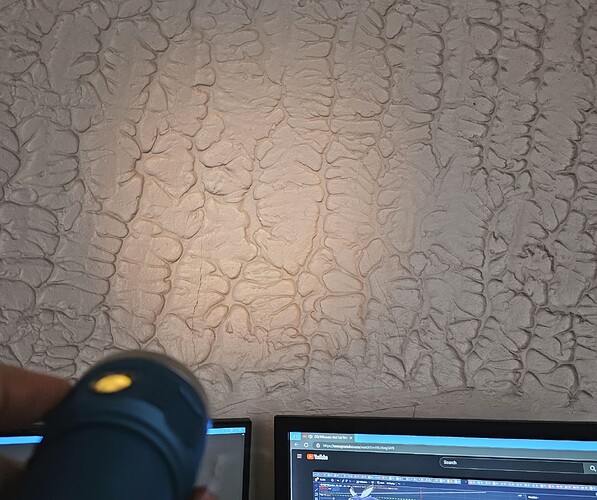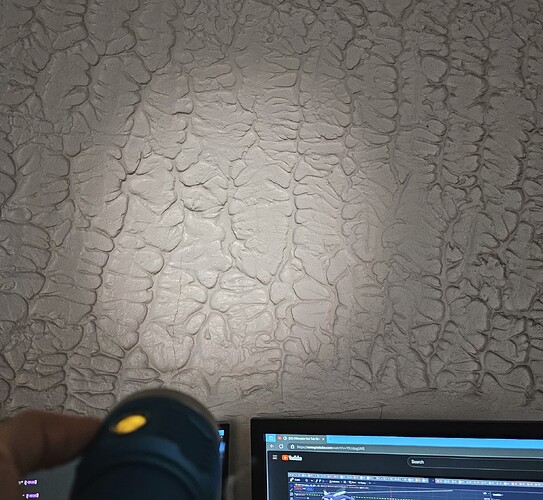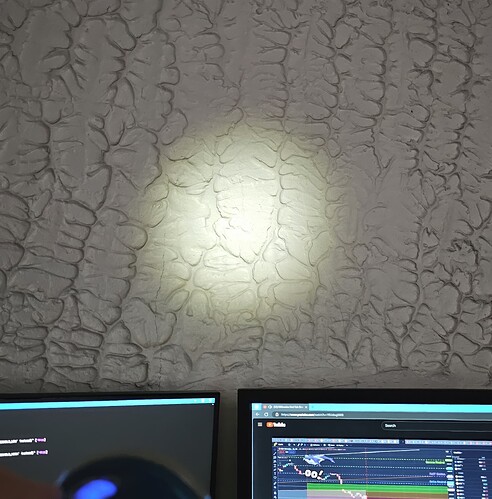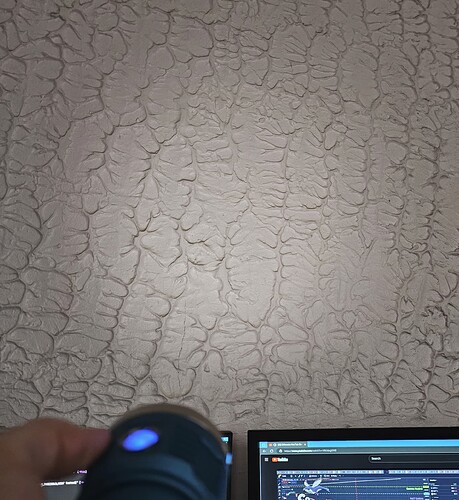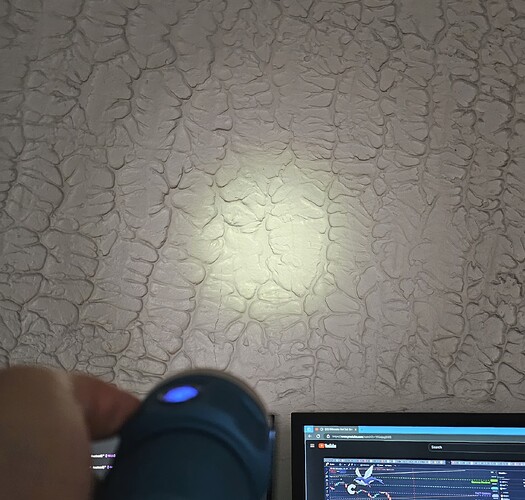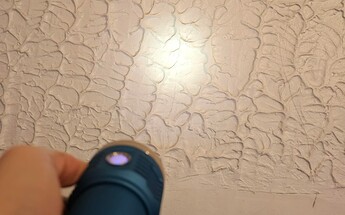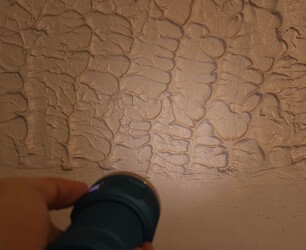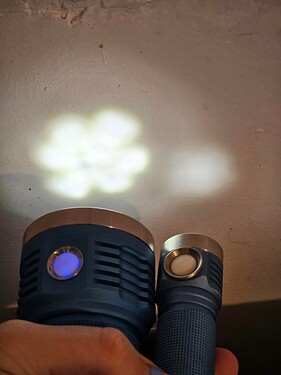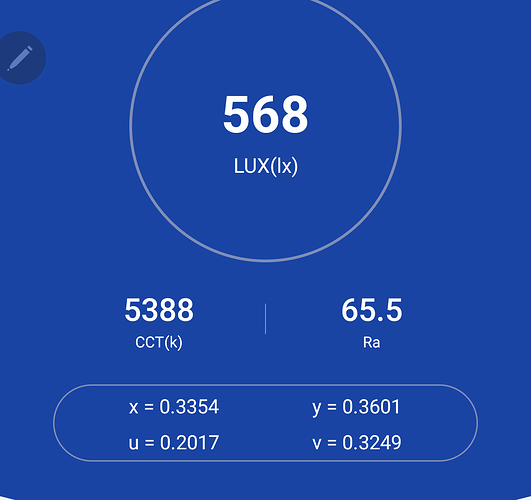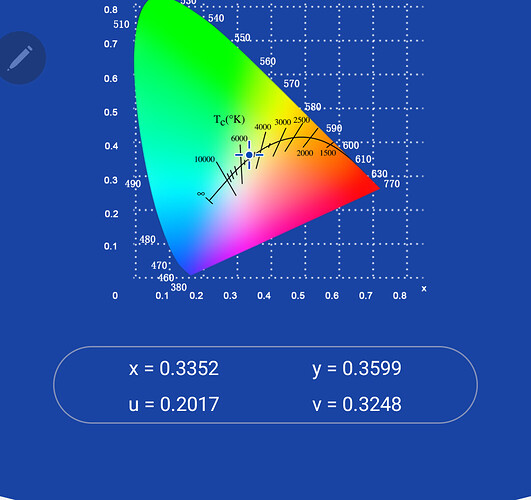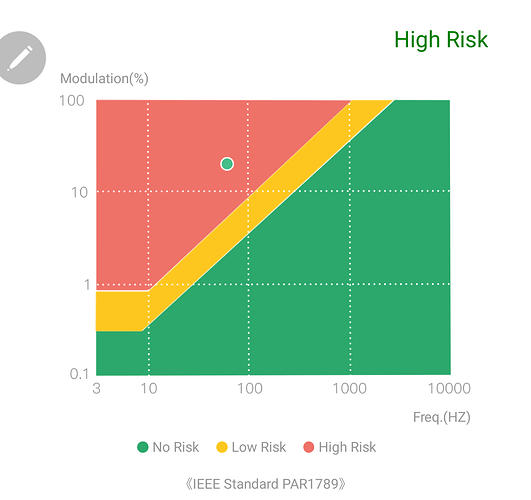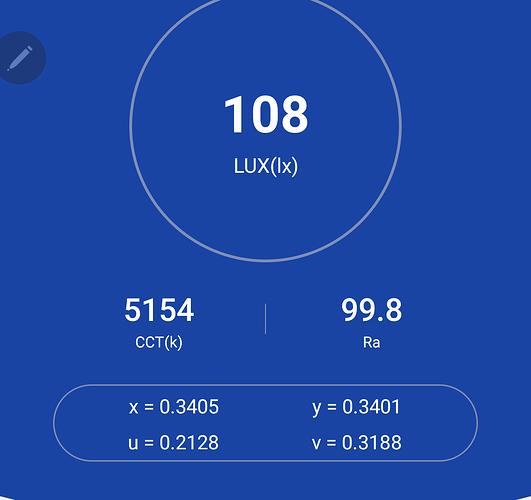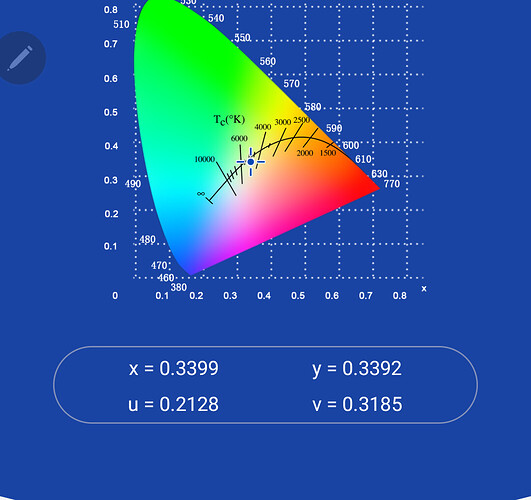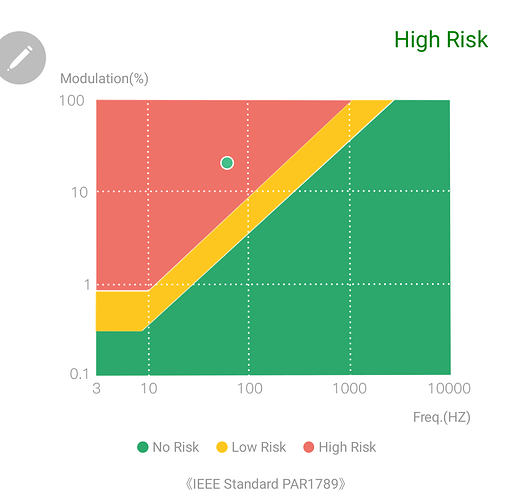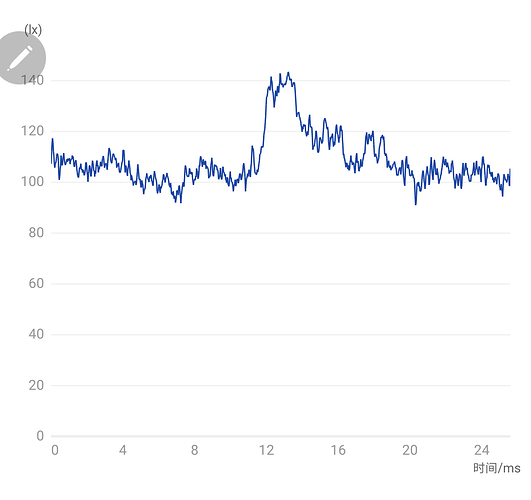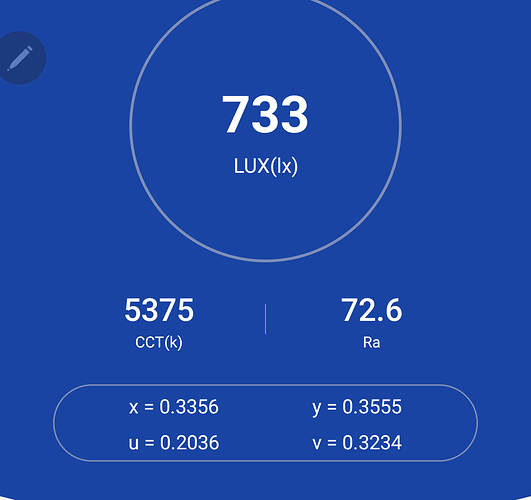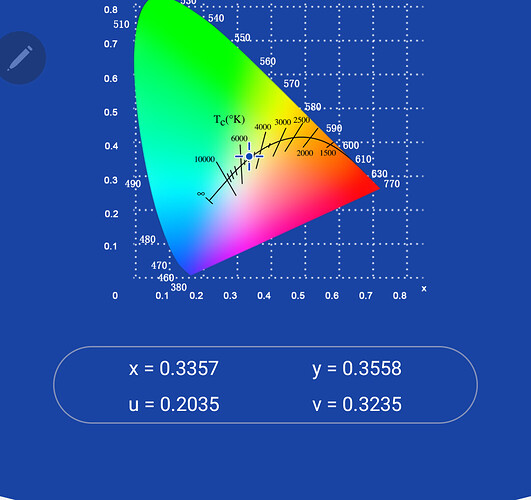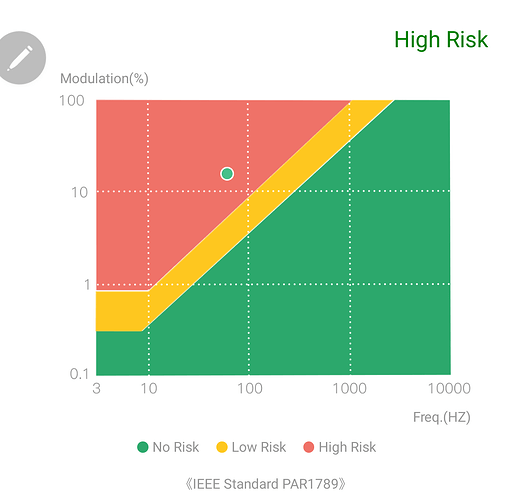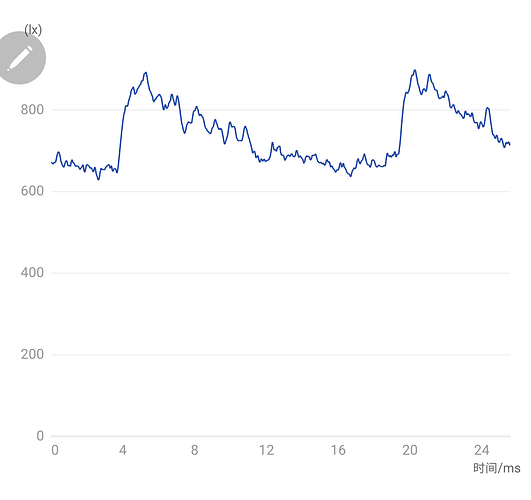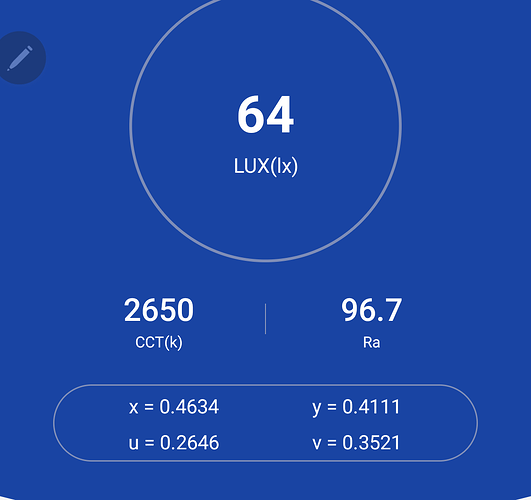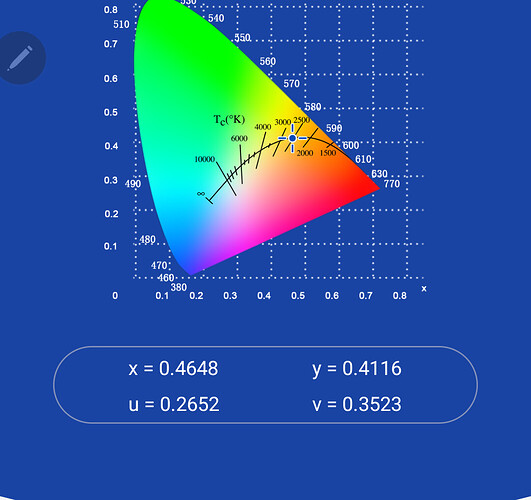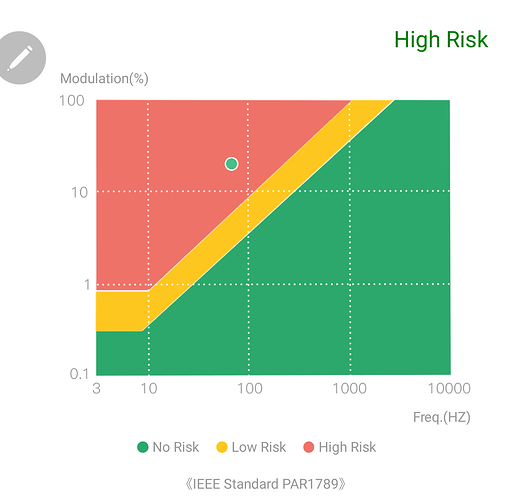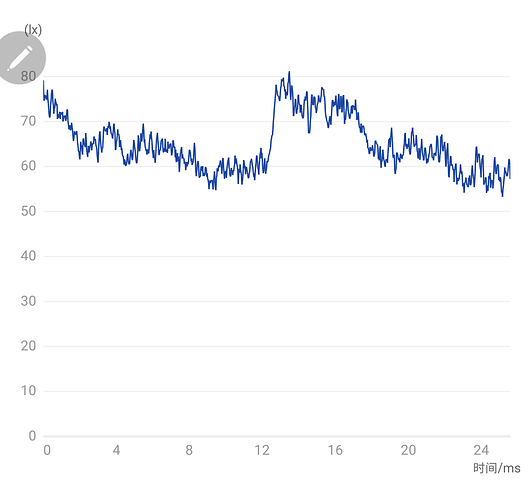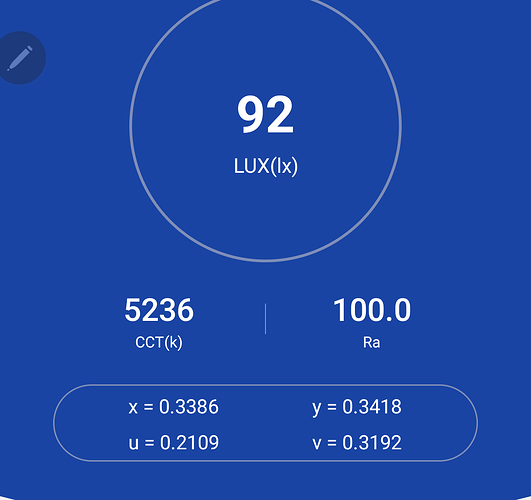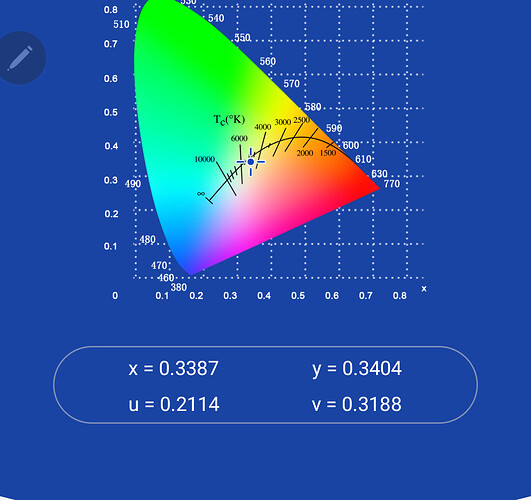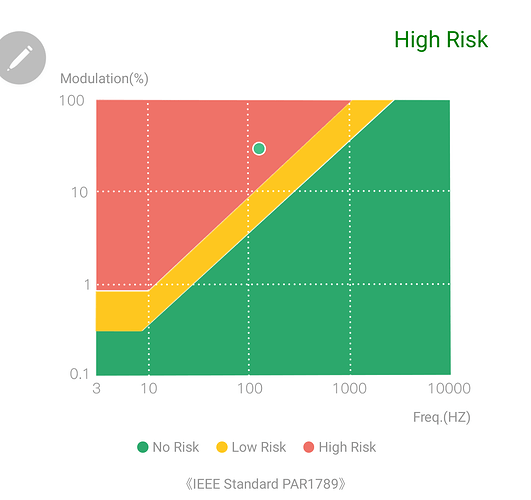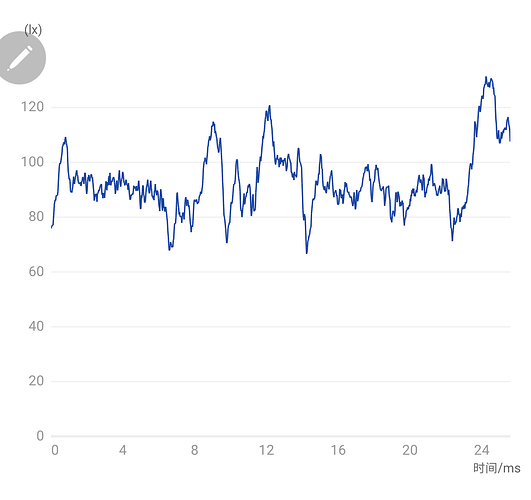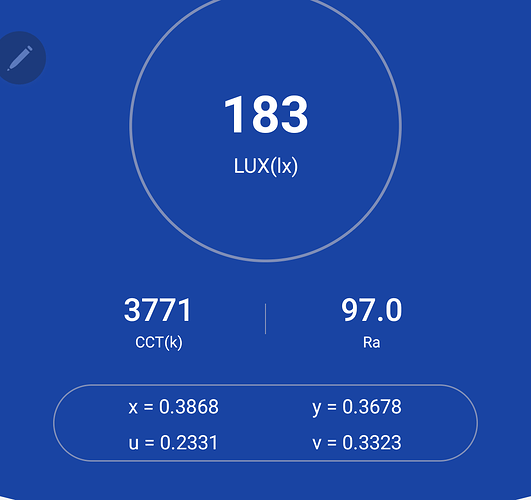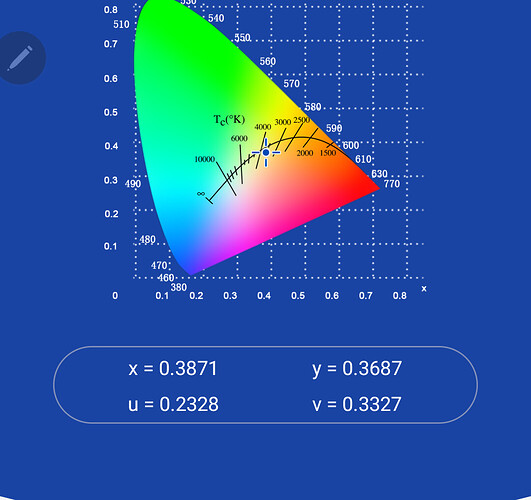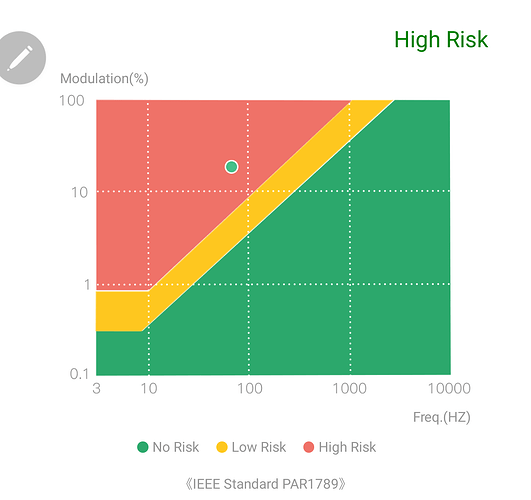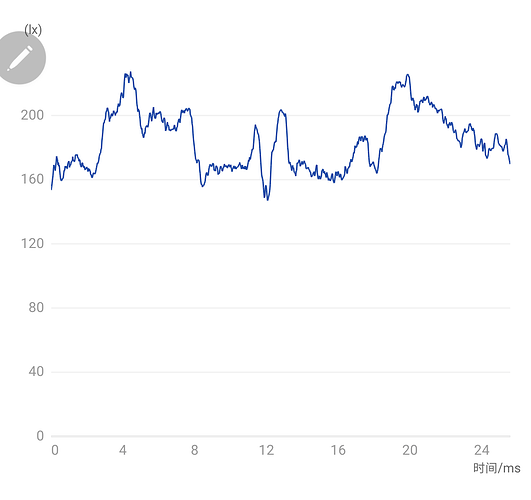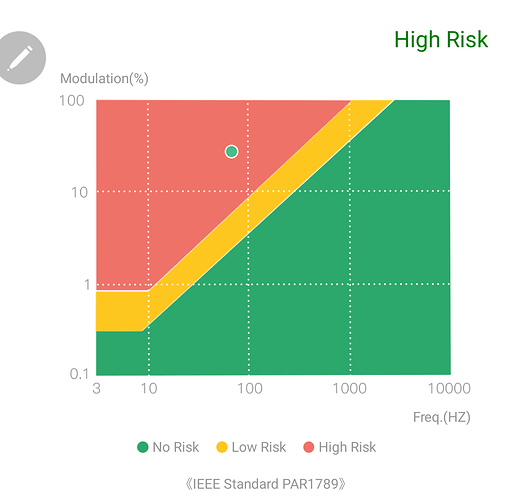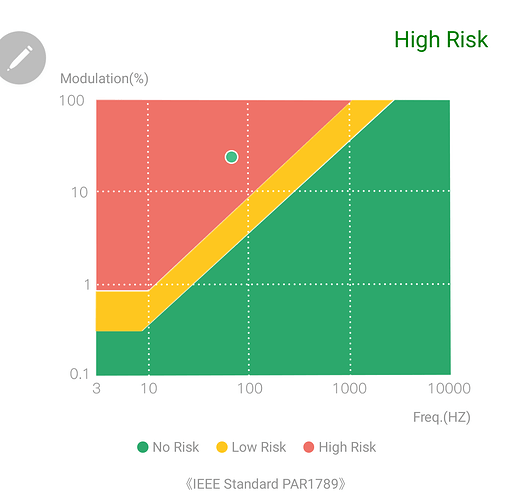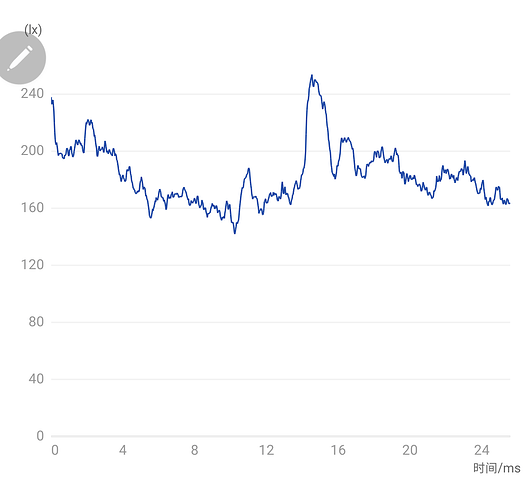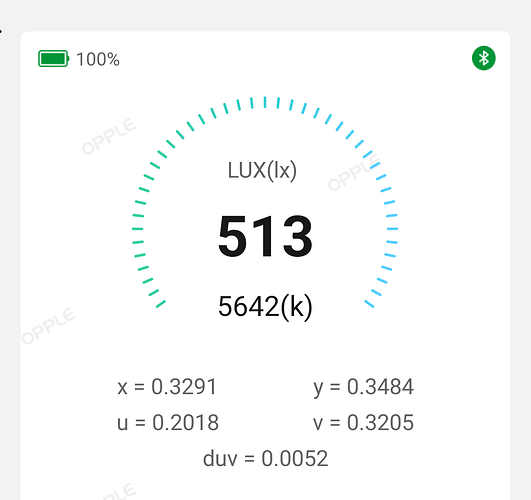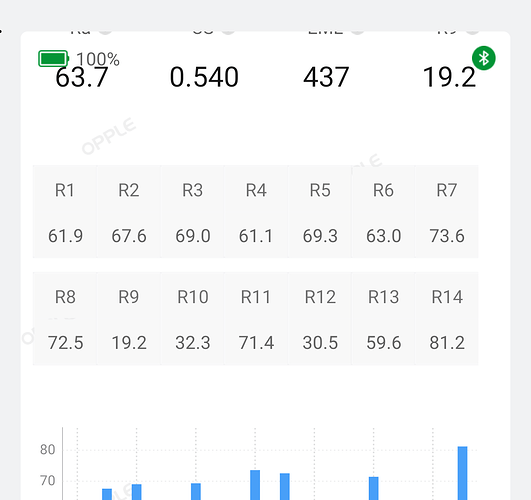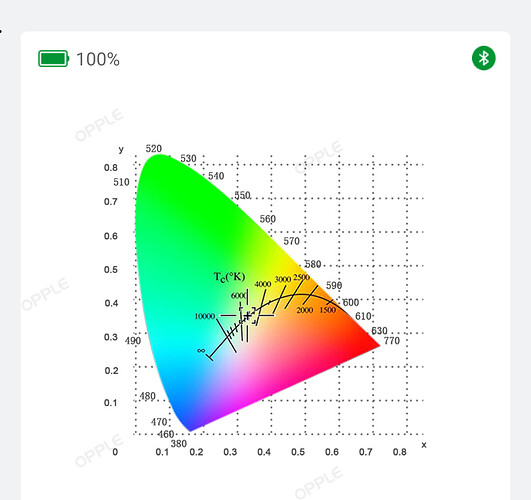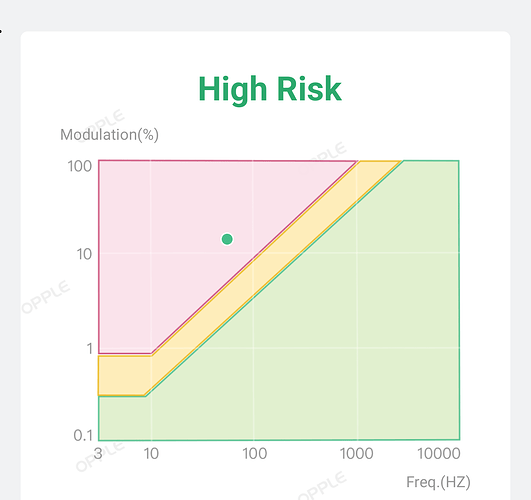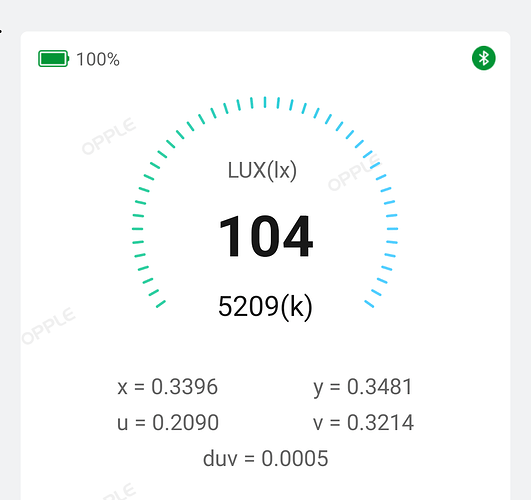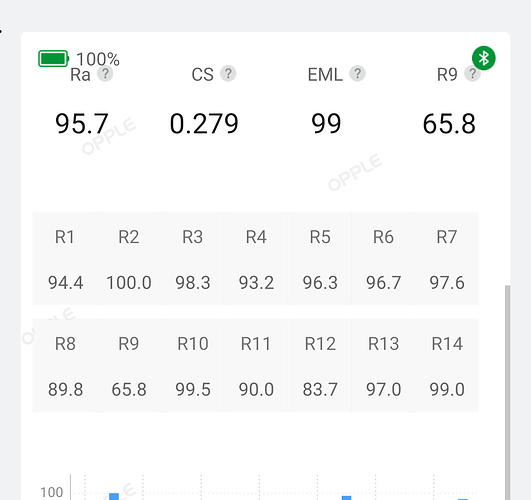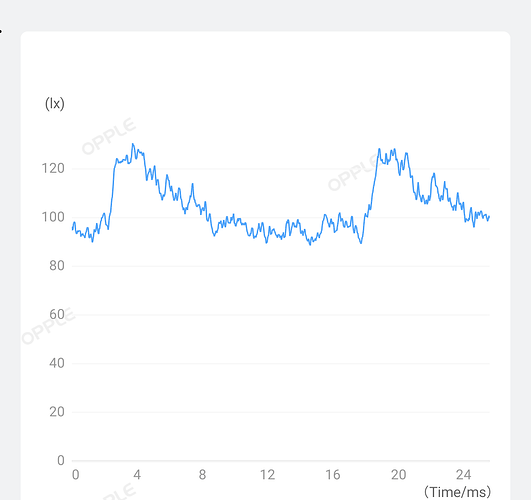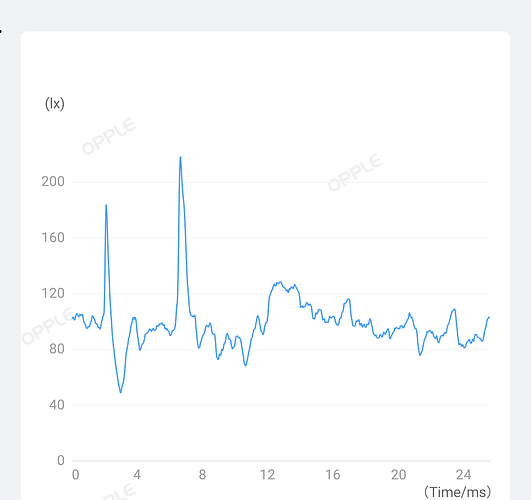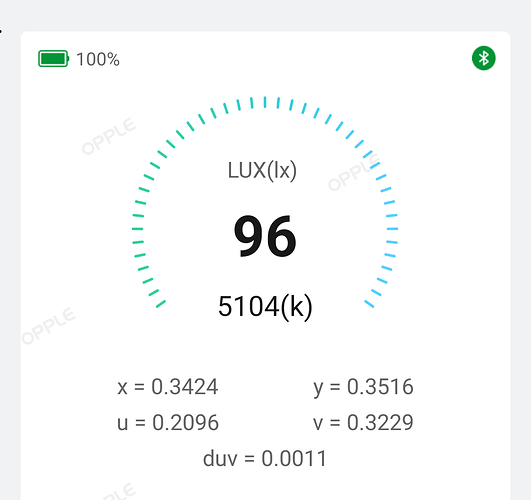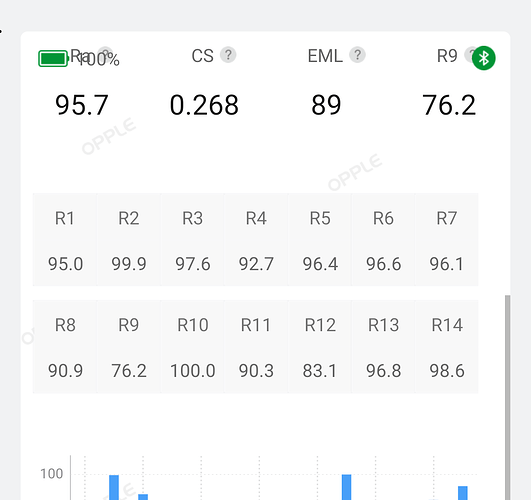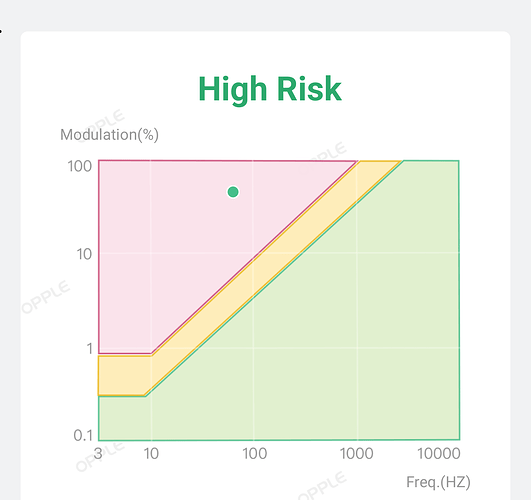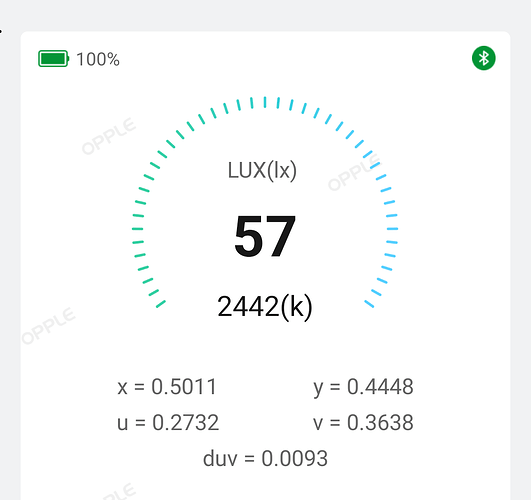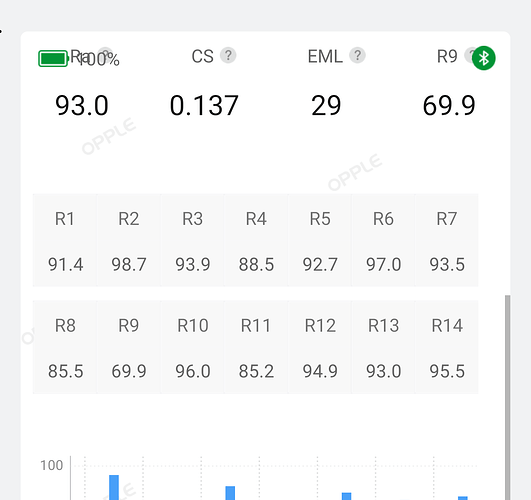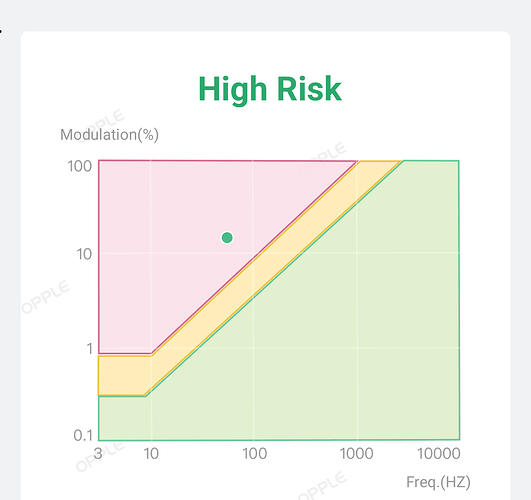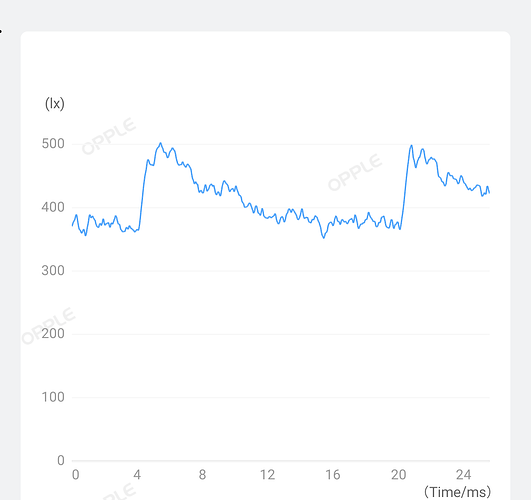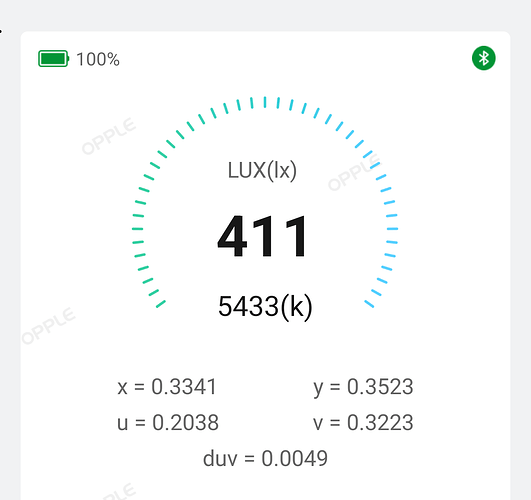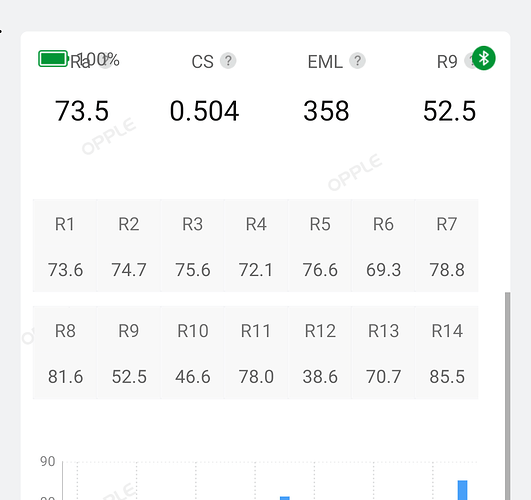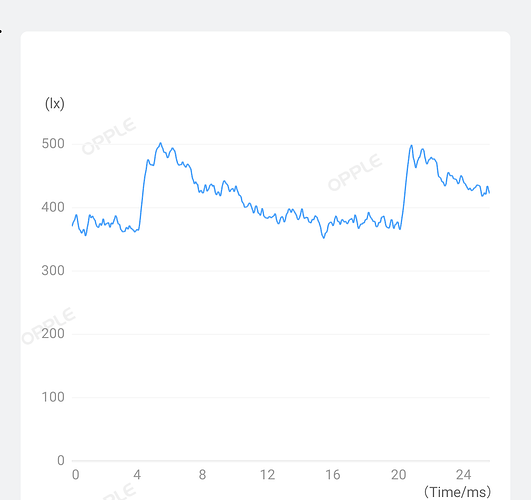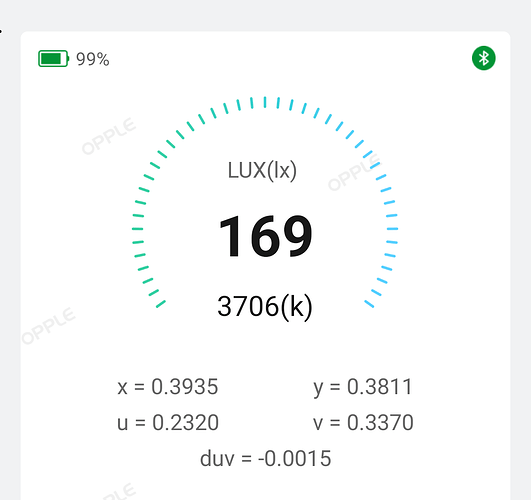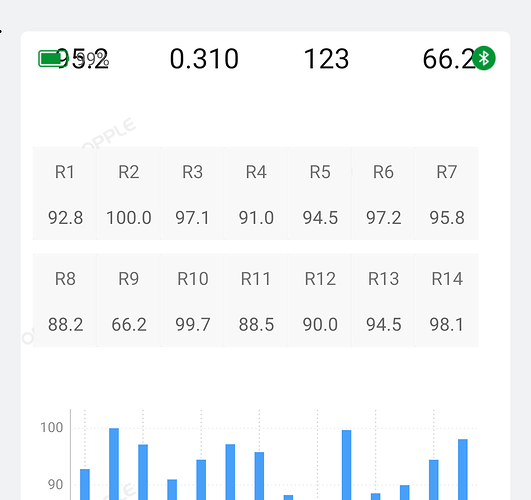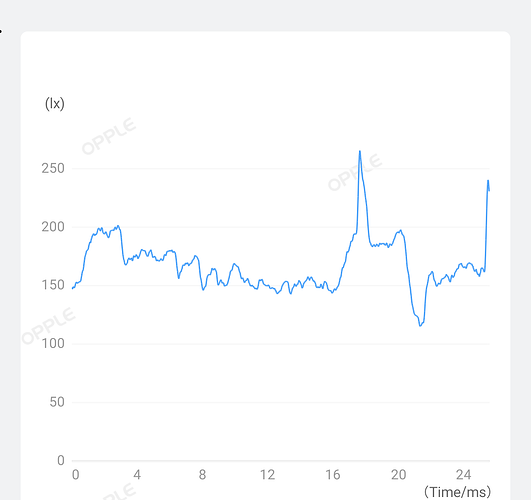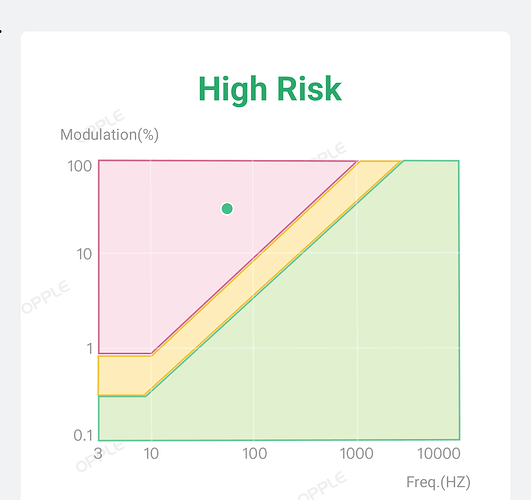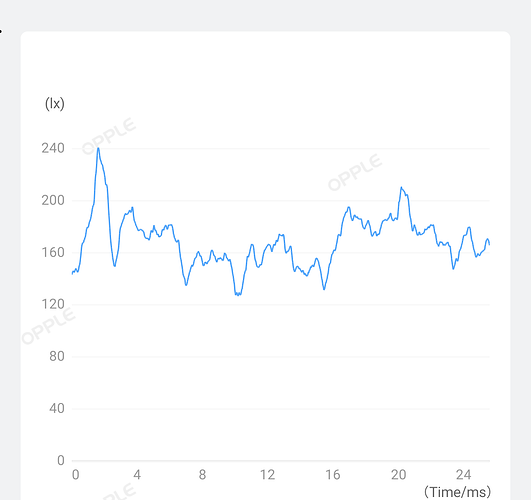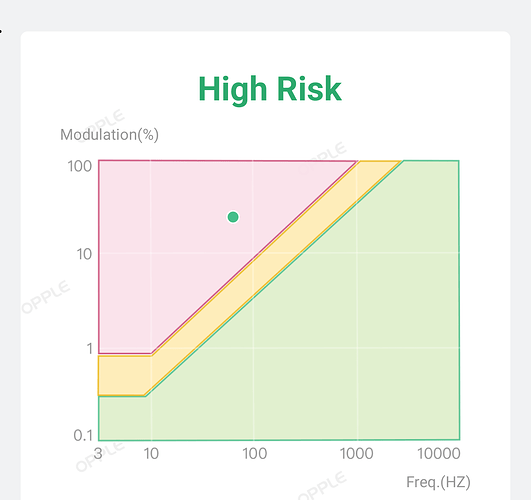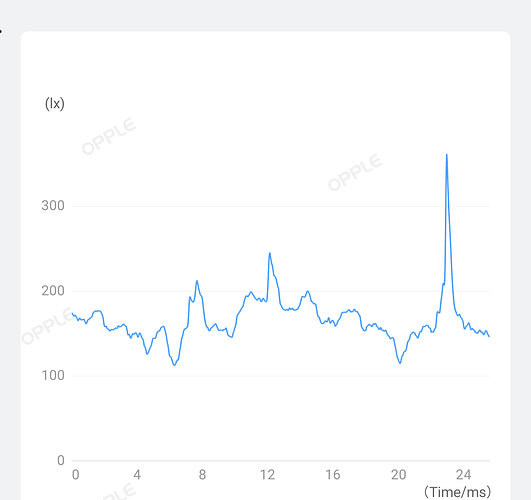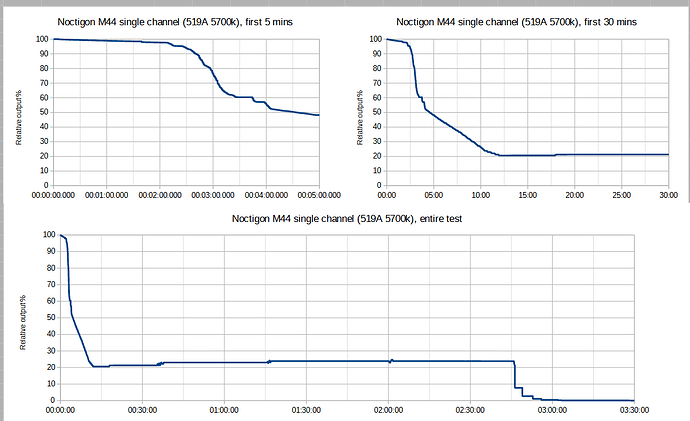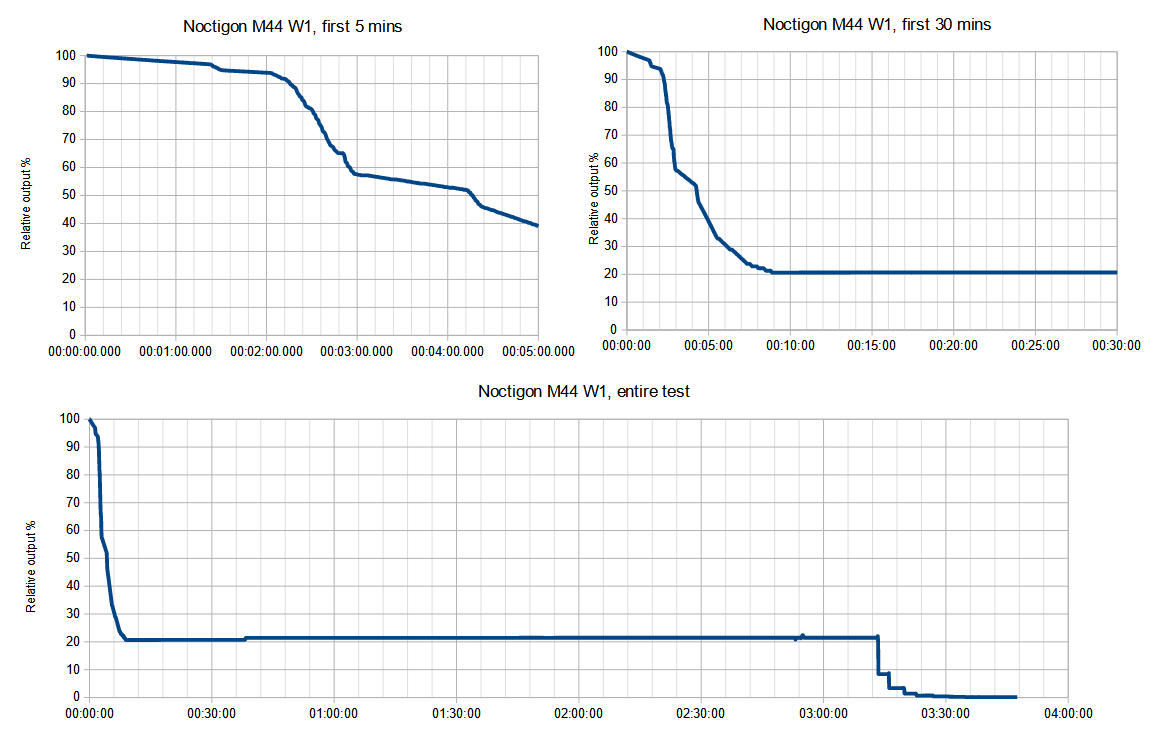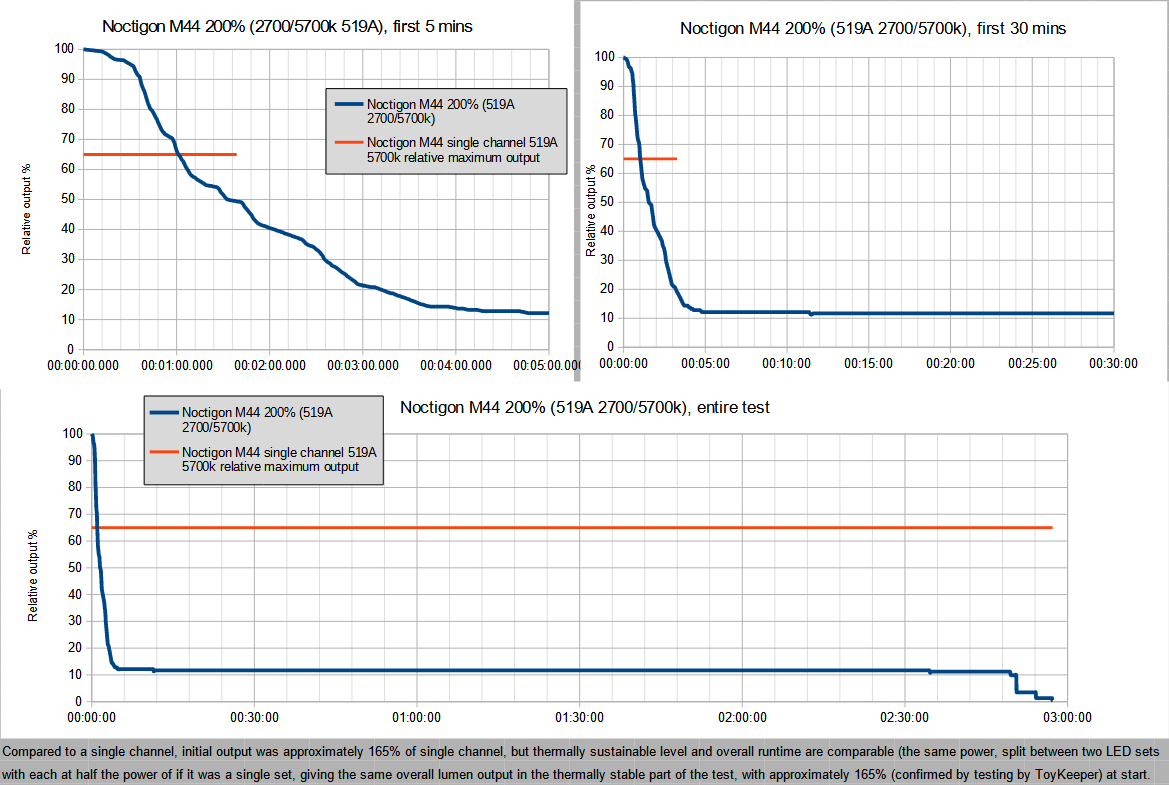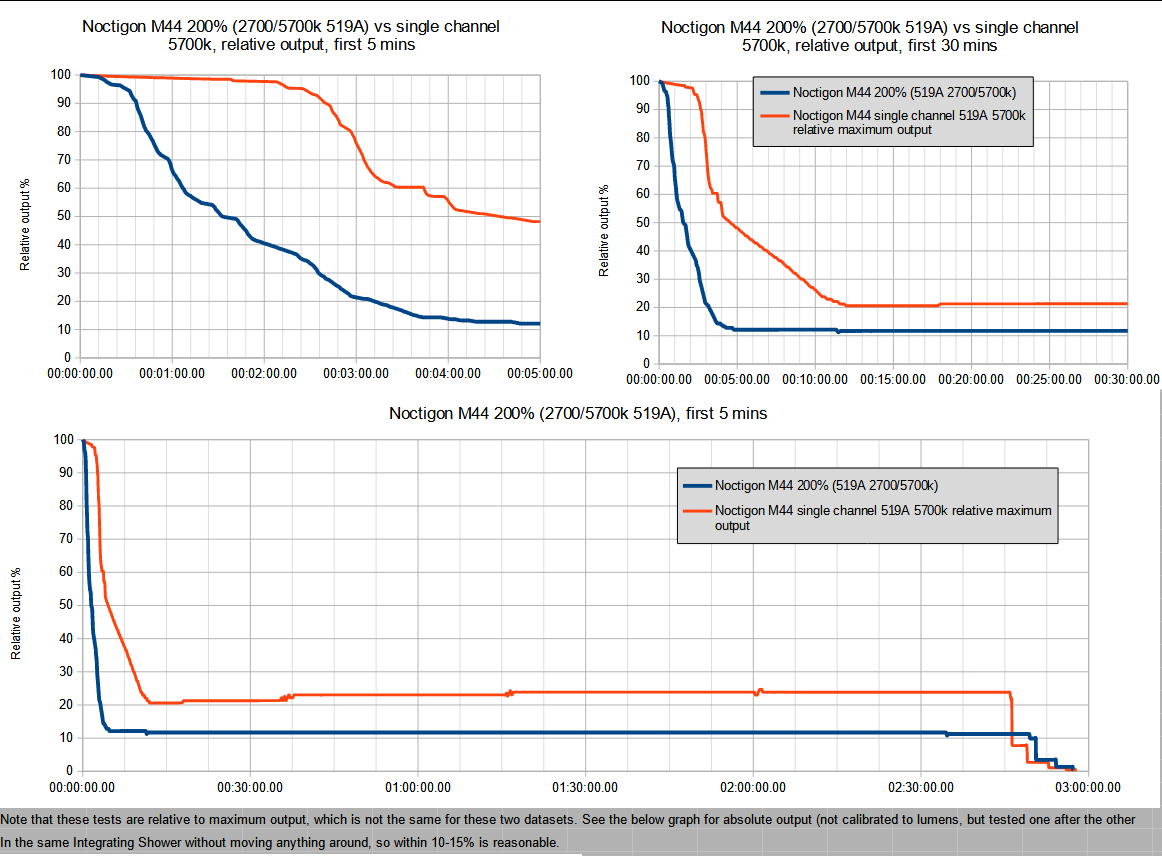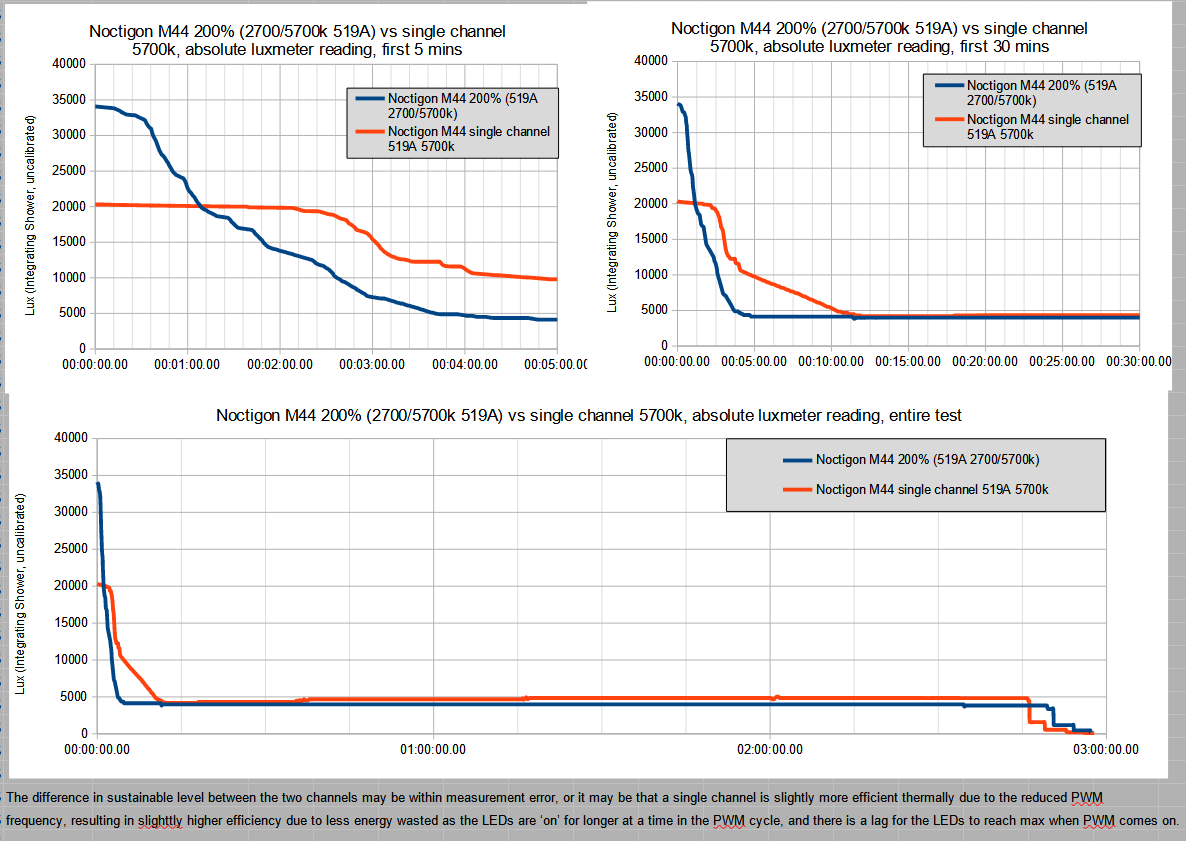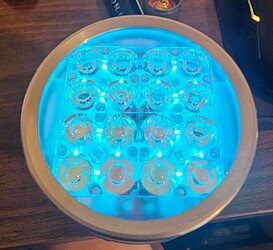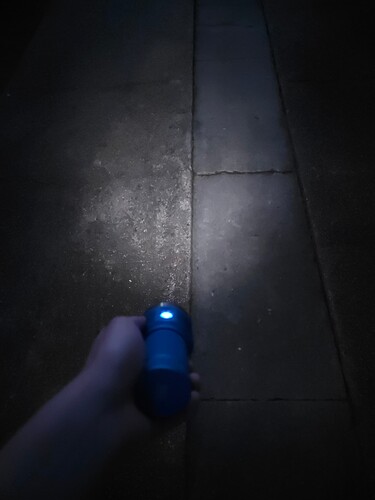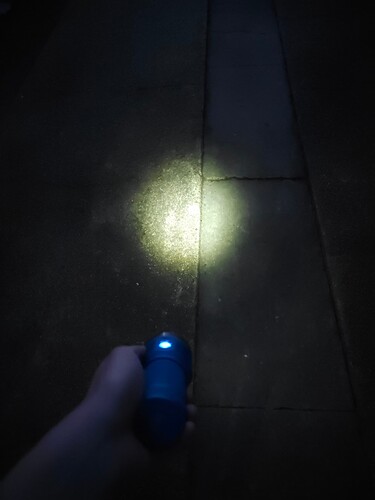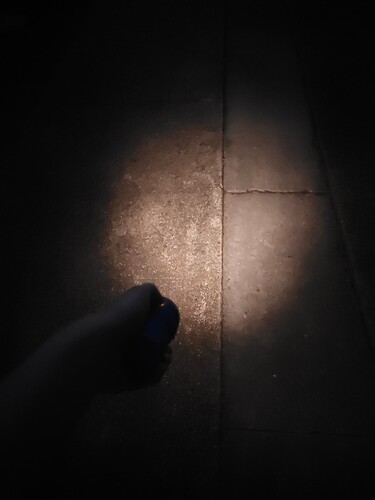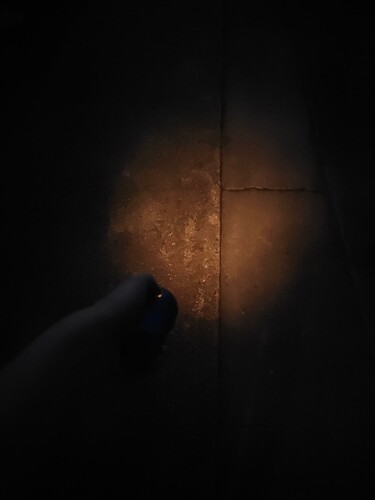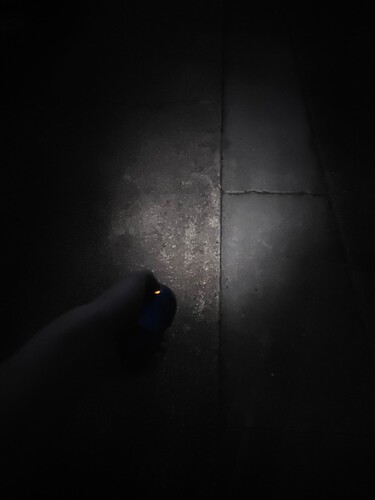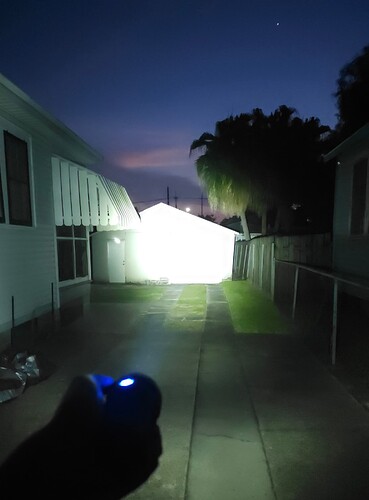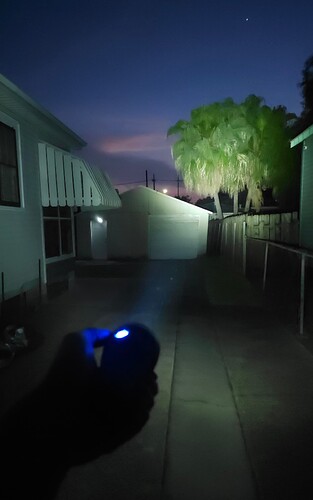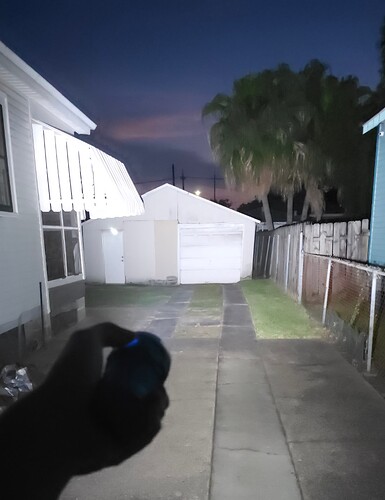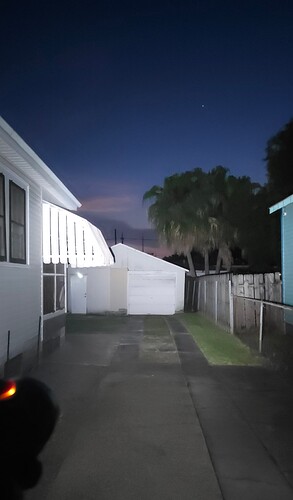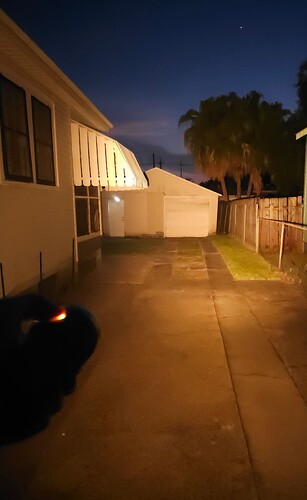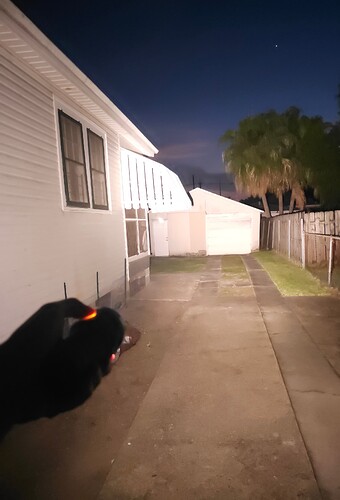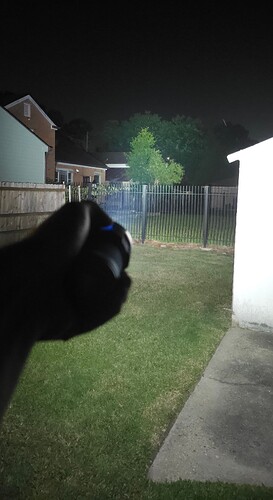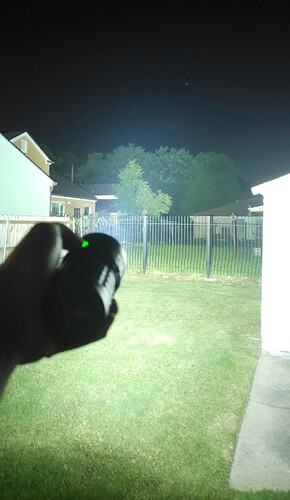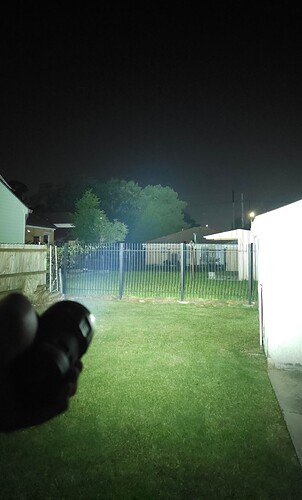Update 2023-10-01: Tested with new firmware, visible PWM flicker is signifcantly reduced, moon possibly slightly lower.
Based on my impression from Discord, I was one of the first to order, and got mine today, seems along with one other, probably a few more on reddit just by sheer force of numbers, who if so haven’t posted as of the time of me starting writing. Seems relatively few people did, probably more over the next couple of days. I got 2 M44s, a 5700/2700 tint ramp, and a W1/5000k 519A flood/throw. I also know a lot of people are waiting to order one until they see how the first orders are in the hands of other people, so hoping I can help out.
This is a first-time unprofessional review, and will probably have updates as I do more testing for a few days due to my life being extremely busy at the the moment, but at some point soon it will also be considered complete. Updates will be posted in-thread as well as added to the main post.
UPDATE: 2023-09-24: Tested the M44 with the new ramp created by ToyKeeper, and both the brightness of moon and the lowest few ramp levels, and also the smoothness of the PWM when ramping channels are significantly improved. Working on updating that section now.
First impressions: Build quality is excellent as usual. Threads were almost completely unlubed, so break out the Nyogel. ~3mm longer than the D18 which is excellent due to the tailcap design. The glass, bezel, head, and battery tube are exactly the same as on the D18 from the outside, except with a single-colour lighted switch. The tailcap has the extra length because the inside rotates freely to allow the two locating pins (which don’t carry current, they’re just polarity protection) to engage and still be tightenable. The free-rotating tailcap feels high quality, also lends itself well to fidgeting (but makes it hard to probe with a multimeter to see why your batteries aren’t working (see below for that)). Standard Hanklight box, holster, 2 spare o-rings, and lanyard.
Standard Hanklight flashing pads, attiny1634. Shipped with 2022-05-30 firmware with its own model code (0143). Looks like TK pushed some new changes today but I’ve only very briefly skimmed them, been extremely busy at work today, but it’s probably a good idea to update as there are several bugfixes.
Tailcap lottery winner!
Mandatory crab photo
My initial perception was that it seems to be extremely picky about batteries. I got some P28A rewrapped into buttontops from liionwholesale and the light initially did not work with them (0V read between the centre spring and the edge of the tube. Flat top P28A work fine, but the light seems extremely sensitive to dented positive terminals.
I tried with some of Simon’s flat top to button top adapters (also very useful for charging batteries with dented positives) and it didn’t work, I felt like I was meeting too much resistance while tightening the tailcap (eyeballing it, the dented P28A + button top adapter seemed to be about 1mm longer than the button top rewrap. Other people on Discord had the same experience.
I emailed Hank, who said he tested with button top 30Q, and all of his measure 67 +/- 0.3mm, while my batteries measured at 67.6mm long (maybe 67.5 without the piece of tape over the terminal), and Hank said to use more force, and it worked. It needs a lot of force with slightly longer batteries. More than I would have ever felt comfortable using normally - you really have to twist it hard, putting in effort with both hands. It feels weird a few times but once you’ve had it open and closed a fewtimes you get at least slightly used to it. Only the tailcap is high-torque; the head is as easy as other lights. I personally don’t use mechanical lockout on lights with an electronic lockout, but if I did (or if just forcing a reboot), I’d definitely untwist the head and not the tailcap.
With domed 519A, it’s a smooth circular beam balanced between flood and throw with a fair amount of spill similar to the DM1.12’s flood channel. I don’t have a 519A DT8/K but guessing it’s similar to that. I still would have preferred a 2x2 pattern with each optic only having one channel’s LEDs on it so a floodier optic could be used if desired. In a flood/throw setup, there are dark rings, and you can use the flood channel to fill them in a little at medium distances, but they’re still visible.
UPDATE 2023-09-24: Tested with the new ramp, and both moon and ramping PWM are significantly improved. Original review content is below the updated section:
With the updated firmware, PWM has been significantly improved and there is much less perceptible flicker, both in terms of when the light holds a stable low ramp level, and in ramping between the two LED sets.
I’d say at levels 1-4 there is some PWM visible, and on the very bottom of the ramp (levels 1-2), channel ramping has a relatively small range of perceptible adjustment, but if you increase your floor to level 4, it ramps much more smoothly than it used to, and there is no visible PWM to my eyes at all. Overall the lowest ~10 levels are definitely noticeably lower, and towards the upper end of that range, channel ramping is significantly smoother.
519A 5700k, level 1, indoors, daytime with no extra room lighting
519A 2700k, level 1, indoors, daytime with no extra room lighting
519A 5700k/2700k 50/50 mix, level 1, indoors, daytime with no extra room lighting
W1, level 1, indoors, daytime with no extra room lighting
519A 5000k, level 1, indoors, daytime with no extra room lighting
W1/519A 5700k 50/50 mix, level 1, indoors, daytime with no extra room lighting
with original firmware
A couple of small downsides, that are IMO mostly justifiable for a large throwy flooder. First off, moon mode is extremely high. As in, I checked multiple times that I didn’t somehow mess up in making sure the floor was at 1. I’m not good at guessing low lumen outputs but it could well be into low double digits. Perceptually, a single 519A channel appears about twice as bright as a 6500k Sofirn Q8 plus’ moon.
It also has noticeable PWM at low levels, especially level 1. Not really visible in a well lit room, but noticeable in a dark house. I’m not particularly sensitive to visible PWM (I tend to hear it more) but 1 is extreme, and significantly worse when both channels are in use at once. With a single 519A channel, I couldn’t see PWM above level 5, and it was barely noticeable to the point I had to look for it on 4. With both channels active, PWM is extreme (but an inherent limitation of a boost driver light, I guess - the minimum needed to make an LED come on at all is higher, so with more LEDs, that’s more total output, while with a linear, adding more LEDs also dims them). At 50/50, level 1 has the worst PWM I have seen in an enthusiast light. Past level 8-9 it’s barely there, and was completely invisible to me at 12.
When I first used moon mode on a 50% mix at night, I actually first thought I had somehow accidentally gone into candle mode. I now have the moon set to 9 on mine, which doesn’t make a huge difference since 1 is already so high, but this is probably not going to be the only light most people take somewhere, I’d guess. The barest audible PWM at mid-ramp if I hold it up to my ear, but not audible even at average hand distance.
One thing to note: Having both channels be active at the same time makes the PWM significantly worse. Which sort of makes sense with the aforementioned limitation, that there’s a minimum it has to put out to keep the LEDs on.
W1 moon. Yes, moon. In a well lit room. Level 1/150. I checked something like 3 times.
519A 5000k on moon, ceiling light turned off (sunny day so not much difference)
W1 M44 on moon vs boost driver W2 D4
Took Light Master 3 and 4 measurements in my patent pending Integrating Wardrobe, featuring a test shelf with interior wall surfaces of stacked Hanklight boxes to ensure lights tested feel comfortable. All tests at 1/150 moon and 30cm distance. Here were the results. I also took multiple samples of the 5700/2700 as that was visually the worst PWM to me, while the W1/5000k light still has what I would call fairly obvious PWM, but the tint ramp light’s looks visually worse to me. Maybe it’s the effect of the output rapidly switching between 2 CCTs, because it is a lot more tolerable with only one channel even though the overall brightness is the same due to the fact that there are still the same total number of ‘on’ vs ‘off’ PWM timeslices.
Light Master 3:
50/50 519A 2700k/5700k
This channel had by far the worst PWM to my eyes, so I took multiple flicker readings.
Light Master 4:
The lightmaster 4 has some accuracy issues compared to the 3, but worthwhile doing as a point of comparison since I already automated extracting and cropping the screenshots.
CCTs largely as expected; 519A and W1 aren’t exactly exotic LEDs. Interestingly, my 5000k 519A read a little cooler than spec, where most of my 519A read warmer. I really don’t mind, if anything it actually very slightly improves it as a general purpose light for me as I like a slight bias towards cool with high CRI.
An oscilloscope would be helpful for the PWM as the lightmaster really doesn’t sample for long enough. I was using both lights all though today and so far I’ve found that it’s at it’s worst with dark-adapted eyes and two sets of LEDs with strongly dissimilar CCTs. Interested in hearing what other people think as more arrive.
All measurements with a UNI-T UT838BT in the world-renowned (people in more than one country have heard of it) Integrating Shower. I don’t have a tube or sphere or any way to calibrate output, so these tests are all relative to 100% output. Using 3x Molicel P28A charged to 100% for each test.
Runtime was very close to the same with all different 519A, so not all combinations were tested (I did test thermal stepdown with each different 519A channel and compared to some other lights I own just to validate my test setup but stopped the test at the stable level).
Anyway, the data:
The difference between these results is within an acceptable margin of error, so at least for most LEDs, the M44 is not substantially different in thermal or runtime performance (which makes sense with 2A/LED).
It is worth noting that I do not have a lumen tube or integrating sphere (yet?..), so I can not measure absolute output. The 200% turbo on the 519A reaches the same runtime as the single channel 519A because it still has the same thermally sustainable level - the initial output is higher (@ToyKeeper measured 165% overall output, which is close to what I got with my uncalibrated luxmeter), but it steps down to the same actual power level, just split between two LED sets). As soon as my lighs cool down from testing, I’ll do some relative luxmeter comparisons.
Here are some quick and dirty luxmeter measurments on turbo (distance between light and meter is 1m):
W1: 73,611 lux
519A 5000k: 16,962 lux
W1/519A 5000k 200%: 87, 659 lux
519A 5700k: 17,033 lux
519A 2700k: 11, 848 lux
519A 5700/2700k 200%: 28,669 lux
I know some people were unsure about the square optics, but I think they work really well, even in the corners. Of course, a 3rd channel with some tiny LEDs like E17A going in there would be even better… ![]() Or, if a high moon is just a limitation of the driver, how about some CSP2323? (the TS10’s main LEDs). Even if I wouldn’t get them myself, I do think frosted optics would make it look great though, with the frosted sides. Aux LEDs are the same ones as other Hanklights, 4 LEDs per optic. Overall effect is very bright and well-blended. Single colour lighted switch only, but at least on both of my lights, the switch is excellent. Nice firm click without being too stiff, no mushiness at all.
Or, if a high moon is just a limitation of the driver, how about some CSP2323? (the TS10’s main LEDs). Even if I wouldn’t get them myself, I do think frosted optics would make it look great though, with the frosted sides. Aux LEDs are the same ones as other Hanklights, 4 LEDs per optic. Overall effect is very bright and well-blended. Single colour lighted switch only, but at least on both of my lights, the switch is excellent. Nice firm click without being too stiff, no mushiness at all.
Here are some beamshots - I’m not extremely knowledgeable about photo stuff so I’m not sure how optimal they are, but I kept the settings locked to the same levels for each of moon, turbo, and the big light throw comparison.
UPDATE 2023-09-24: Took new moon beamshots with updated firmware - the moon level is slightly lower in addition to the PWM being significantly improved.
W1/5000k 519A flood/throw moon
W1 moon
500k 519A moon
2700/5700k 519A tint ramp moon
50/50 5700/2700k moon
2700k 519A moon
5700k 519A moon:
with original firmware
Turbo beamshots were taken with original firmware and not retaken with the update as the top of the ramp is the same.
W1/5000k 519A flood/throw turbo
W1 turbo
Another angle. Surprisingly throwy, I was expecting worse
5000k turbo
And a comparison of throw with two other sodacan enthusiast lights: Emisar D18 with 18xW2 (3x fully charged P28A), and 6500k Sofirn Q8 plus (3xP45B, at ~3.9V because I forgot to charge it ![]() .)
.)
large anduril light comparison
W1 M44 single-channel
W1/519A on 200%. 519A add a bit of midrange punch.
6500k Sofirn Q8 plus for comparison
18xW2 D18 for comparison
Video: flood/throw W1/519A: Site Reliability Enby🏳️⚧️🏁🔦📈🐺👗: "It's frowned upon to get a cool new light and not…" - LGBTQIA+ Tech Mastodon
I was really happy to get mine so quickly. This community has done a lot and been very helpful for me to get through a sometimes difficult time in my life. I’m glad I can contribute something back. Now go and get an M44, and update it because I found a few firmware bugs that got fixed ![]()
Conclusion: I love the M44. It turned out to have a few surprises - in particular, I was anticipating a true D18 replacement, something of similar power but with aux and flashing pads, and it isn’t quite that. Ultimately, it’s still an amazing light, just in its own way. I have a few boost drivers but not a huge number, I’ve always valued efficiency as a “nice to have” but ultimately secondary to power and even CRI, but this was in a way the light I didn’t know I needed. Boost efficiency, but without sacrificing much power. Even the flood/throw config, while deeper and throwier optics would have been nice, ultimately it’s limited by the form factor, and the throw performance with W1 is more impressive than my initial expectations - I guess it’s a combination of W1 having a high efficiency at lower currents than some other throwy LEDs, combined with the simple fact that there are 8 of them overcoming the somewhat floody optics through sheer force of output, and all with relatively low heat and plenty of thermal mass to buffer it. I feel like it could be an excellent light for area lighting and photography as well, particularly at medium distances, although you will have to find some way to mount it.
Ultimately, most of the small issues don’t strongly matter - for a large floody thrower, a little visible PWM on the lowest levels isn’t much to worry about, and it’s also possible I just notice alternating warm/cool CCT more easily than PWM on similar tints. Wasn’t expecting to learn something new doing this (it was kind of an impulse to do at all) but I’ll take it.
The tailcap is a nice touch with the Meteor branding. I knew nothing about good lights when the original M43 was being sold, and I’ve seen a few videos and know a little about it and how revolutionary it was at the time, but it also shows how much technology has improved since then, and shows that Hank is still one of the greatest light creators around, and it’s thoughtfully designed, well put together, and even reasonable value when you consider the amount of work that clearly goes into putting each one together, and overall I feel this light deserves the name Meteor.
A lot of people, including myself, were seeing the M44 as a D18 replacement - an enthusiast light with some extremely high power, but more modern with aux LEDs and flashing pads. When it was revealed to be a horizontal scaling of the existing 2A/LED boost driver, I will admit I was mildly disappointed, but still excited because there is still nothing else like it that exists.
When the details came out that it was a 2A/LED boost driver, I personaly felt it wouldn’t work that well as a flood/throw light due to how shallow the DT8 optics are. With an M44 in my hand, I can say that the throw is excellent - yes, my DM1.12s are lighter, smaller, and throw further, but the M44 puts out way more lumens, and throws almost as far.
When I went to test the throw on the W1 outside at night, I was amazed. It’s a lot throwier than I thought. I guess, the W1 is an efficient LED at lower currents, so 2A means the W1 is still being driven at a reasonable level, while LEDs like 519A or W2 that can take higher currents are closer to the bottom of their operating window. That, plus the simple fact that there are eight of them, makes this actually a great thrower in my opinion. Sure, you can get more throw for the dollar, but with the flood channel too and the extremely high efficiency, it’s a unique combination.
On a more personal note:
I’ve been going through a very difficult time in my life recently, and all of this happened relatively unexpectedly for me, that I would be possibly the first person to get her M44s, and my decision to do a review at all was impulsive and a way to distract myself from some bad things that were going on in my life, but I’ve really enjoyed everything and this community has made me feel welcome. Certain community members, in particular @ToyKeeper herself, have really gone above and beyond in making me feel welcome - I know I’ve been here for a short time in comparison to some people, but I tend to be passionate about things I like (in less than a year I went from buying my first new light to finding and fixing bugs in anduril, after all… :P), and it makes me happy to know other people out there are getting happiness from my work too.
I want to thank everyone, and I hope that I can keep being helpful to a community that has given me light (literal and metaphorical) in a very dark time in my life, and I feel glad I can bring that same light to other people’s, whether with an impulsive unscripted unprofessional review, firmware mods, or just giving advice. Sometimes this community has been a reason for me to keep going. Thank you.
Arbitrary Rating Based On My Expectations As A Number In The Light’s Name™: 40/44 stars.
I now officially claim the title of “first M44 reviewer”.
Finally, a classic from IRC:
<SiteRelEnby> hands are shaking lol
<SiteRelEnby> cant get the batteries in
<SiteRelEnby> very little lube on it
< Bob_McBob> /r/nocontext
I swear it wasn’t intentional ![]()
